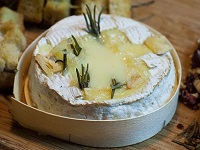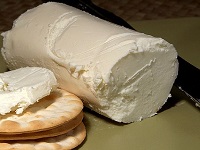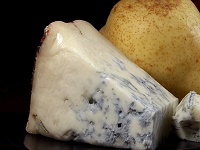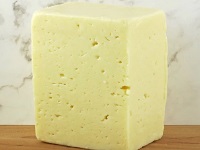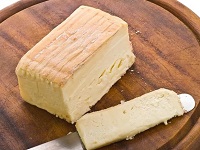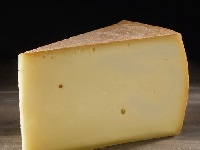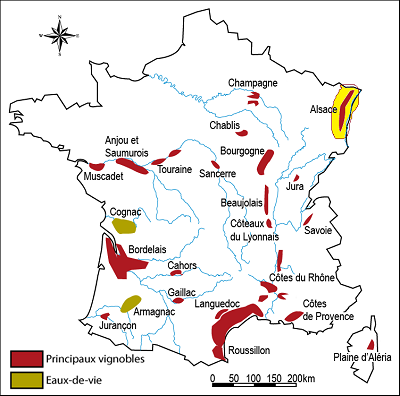Pinot Gris (France)
Pinot Gris from Alsace and Pinot Grigio from Italy use the same grape.
But the Alsatian version is more fruity with more aroma and sweetness.
French Pinot Gris Flavors
Lemon Candy, Yellow Apple, Melon, Apricot, and Plum are typical French Pinot Gris flavors, followed by Honey, White Flowers, Perfume, and Spices.
Lemon |
Apple |
Melon |
Apricot |
Plum |
Honey |
Flowers |
Spices |
French Pinot Gris Profile
French Pinot Gris is known to be off-dry, fruity, with a balanced acidity:
| SUGAR: | Off-Dry (10 g/liter) |
| BODY: | Medium - Full |
| FRUIT: | Medium - High |
| ACIDITY: | Medium |
| ALCOHOL: | 13% ABV |
| Serving temperature: 6-8°C (43-46°F) | |
French Pinot Gris Food Pairing
French Pinot Gris has a balanced intensity that pairs well with many types of food.
The perfume matches Pâté and Creamy Sauces, and the sweetness makes it well suited for both Spicy and Sweet & Sour Dishes.
Aperitif |
Vegetables |
Pasta |
Risotto |
Pâté |
Tapas |
Sushi |
Chili |
Excellent Pairings
Aperitif.Spicy Food. Indian. Thai. Mexican.
Chinese. Vietnameese.
Asian Sweat and Sour.
Full-bodied Pinot Gris
Creamy Pasta and Risotto.
Smoked Salmon.
Pâté. Foie Gras. Poultry. Pork.
Rich Veal. Lamb.
Cheeses
Hard Cheese.
Comté. Beaufort. Cantal. Gruyère.
Manchego. Pecorino. Dry Jack.
Spesialities:
In Alsace, Pinot Gris it is the preferred match to the regional pork
and potato specialty Baeckeoffe.
The Ideal Glass for French Pinot Gris
A Tulip Shaped Glass with a slightly smaller bowl can be suitable for various dry white wines.
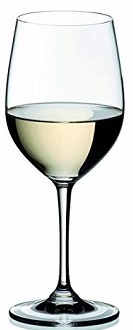
|
The glass guides the wine to the center of your mouth, avoiding the sides where acidity is less pleasant.
A smaller bowl also helps to serve smaller quantities, and keep the wine cold. It also helps if you hold the glass by the stem! |
French Pinot Gris Cheese Pairing
Off-dry white wines (Riesling, Gewürztraminer, Chenin Blanc) have a touch of sweetness that makes them super versatile with cheese.
- Brie and Camembert are cheeses with a creaminess that pairs beautifully with the sweetness and acidity of French Pinot Gris.
- Chèvre (Goat Cheese). A tangy and bright goat cheese is a classic with slightly sweet whites.
- Gorgonzola Dolce. Sweet wines balance the saltiness and funk of mild blue cheeses.
- Havarti and Fontina are buttery and mild cheeses that play well with the fruitiness of the wine.
- Taleggio (Washed rind cheese). The cheese funk is mellowed by the sweetness of the French Pinot Gris.
- Gruyère is nutty and rich, and balance nicely with the acidity and fruitiness of French Pinot Gris.
If You Like French Pinot Gris
You May Also Like:
About Pinot Gris / Grigio
Pinot Gris (Pinot Grigio) originates from Burgundy.
Today it is cultivated primarily in Italy and France (Alsace).
There are primarily three different types of Pinot Gris:
Light, Dry and Crispy (Italian Pinot Grigio and Australian Pinot Grigio).
Off-Dry and Aromatic (French Pinot Gris and Australian Pinot Gris).
Dry and Fruity (Something in between Italian Pinot Grigio and French Pinot Gris).
Alsace Wine Production in Hectares
Alsace is dominated by white wine. 90% of all Alsace wine is white.
The most famous sparkling wine is Crémant de Alsace
| Grape | 1969 | 2017 |
|---|---|---|
| 1. Riesling | 1200 | 3350 |
| 2. Pinot Blanc | 1040 | 3320 |
| 3. Gewürztraminer | 1950 | 3150 |
| 4. Pinot Gris | 390 | 2460 |
| 5. Pinot Noir | 200 | 1670 |
| 6. Sylvaner | 2580 | 920 |
| 7. Muscat | 340 | 350 |
| 8. Chardonnay | 0 | 200 |
| 9. Chasselas | 1000 | 70 |
| Total | 9440 | 15600 |
Source: Conseil Interprofessional Vins d’Alsace.
Pinot Gris (France)
Apple |
Peach |
Flowers |
Spices |
Pinot Gris generally produces round and full-bodied wines, with moderate acidity, and a pleasant after-taste. Sweet flowers, peaches, and some spice in the character are common in editions where the grapes have become properly ripe.
Pinot Gris can vary significantly in sweetness and body, depending on where and how it is produced. It ranges from dry to off-dry (slightly sweet) and generally has a fuller body compared to Pinot Grigio, with a richer, more rounded mouthfeel.
Pinot Gris often shows more pronounced and complex aromas and flavors than Pinot Grigio. Typical notes include ripe tropical fruits (such as pineapple and mango), stone fruits (like peach and apricot), and a honeyed character. You might also find spicier, earthy, or floral nuances.
Pinot Gris is known for its potential to produce high-quality wines with depth and complexity. It can age well, developing additional layers of flavor over time. The best examples come from Alsace in France, where it can achieve remarkable richness and intensity.
In Alsace, Pinot Gris often replaces red wine and is used (especially if developed) for white meat dishes such as chicken and pig, and also for goose liver.
Pinot Gris in Alsace
Pinot Gris originated in Bourgogne, but has shown its best potential in Alsace.
In Alsace, Pinot Gris is considered a noble grape, where is was first known as Tokaj d'Alsace.
Alsatian Pinot Gris is quite different in taste than those from other regions.
The Alsatian version is typically a little off-dry.
Alsace, located in northeastern France, is characterized by several key natural factors that significantly influence the style of Pinot Gris wines produced in the region.
These natural factors work together to create Pinot Gris wines that are rich, aromatic, and full-bodied, with a potential for aging that sets them apart from their lighter counterparts like Pinot Grigio.
Climate
Alsace has a continental climate with cold winters and warm, dry summers. The region benefits from a long growing season, allowing grapes to ripen fully and develop rich flavors.
Topography
The vineyards are situated along the eastern slopes of the Vosges Mountains. This topography provides excellent sun exposure and drainage, which are crucial for grape quality.
Soil
The soils in Alsace are diverse, including granite, limestone, clay, and volcanic soils. These varied soil types contribute to the complexity and depth of flavors in the wines.
Rainfall
Alsace receives relatively low rainfall, which helps concentrate the flavors in the grapes. The region is also in the rain shadow of the Vosges Mountains, further reducing the risk of excessive moisture.
